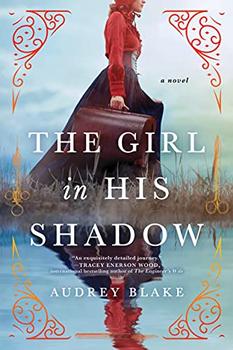Summary | Excerpt | Reading Guide | Discuss | Reviews | Beyond the Book | Readalikes | Genres & Themes | Author Bio

PROLOGUE
Hefting his black bag, Dr. Horace Croft stumped down the uneven pavement. Despite the afternoon sunshine, the street was silent and the air thick with fear. Shop doors were shut and bolted, and too many anxious faces watched from the windows. For fifteen years London had dreaded the cholera. Now it had come.
Croft had tried to prepare, studying initial reports of the epidemic from India, Russia, and Japan. An irreligious man, he gave silent prayers of relief when the outbreak of 1827 died in the Caucasus before reaching Europe. Foolish of him. Four years later, the deadly disease advanced from the dark forests of the East into the shadowy Balkans. The following year it breached England's rocky shores. Miraculously, the outbreak was contained in Sunderland, but this was respite, not reprieve. Three months later, the disease erupted in London.
He'd paid ten calls already today, all within a mile of each other. He frowned, still troubled by the last.
Jemmy Watt had first sent for him yesterday to tend his feverish wife. Today, she was dead. So were her children, and Jemmy was failing rapidly. It would be a miracle if Croft found him alive tomorrow. This disease was too strong to fight. Even worse, the lads at the parish were cowards, unwilling to come for the bodies of Jemmy's family. Croft had shouted and cursed, warning them against leaving corpses harboring contagion until they'd finally cleared them away, but not before binding linen around their faces as a shield against the miasma of disease. All the shouting left Croft's throat dry as pasteboard.
One more stop before he could go home. With this patient, at least, he had some hope. Francis Beady, a stationer, was gone already, buried in quicklime a week ago, but the wife, Margaret, ignored grief with an iron will. Yesterday, though terse and thin-lipped, she'd been determined to keep her ailing mother-in- law alive. Better yet, her child and baby were still healthy. He had left Margaret Beady with a tincture of willow bark for fever and instructions to get help with her mother-in- law's care, though they knew no one would come.
"I'll try, Doctor," Margaret said, spooning water between the dry lips of her mother-in- law, while the little girl—a mere eight or nine—bounced the baby on her knee. The old woman seemed to be turning the corner.
Yes, he expected to see improvements in the Beady house. The shop was closed, naturally, so he knocked loudly on the door. No answer. He checked his watch. Mrs. Beady knew to expect him.
"Mrs. Beady!" Still no sound. Worried now, he rattled the handle. It moved beneath his hand. Unlocked. Horace frowned. It wasn't like Mrs. Beady, but there was little danger of invasion. The neighbors all knew of their affliction. Croft stepped inside, past the dimly lit shelves of notebooks and paper. In only a week, the counters had acquired a film of dust.
It was a small shop, but the Beadys made a better living than Jemmy Watt. Not that money dissuaded cholera or made it any less lethal. He made his way up the stairs to the family's rooms on the second floor. "Mrs. Beady?" It was too quiet, and the telltale stench hovered on the landing. Resigned to what he would find, Croft walked in, stepping over the toy blocks abandoned on the floor.
He found the mother-in- law's wasted body in the bedroom, but Mrs. Beady had been well enough then to cover her with a sheet. Mrs. Beady was curled up on the sitting room floor, her hair still damp, her lips cracked. The baby lay beside her. It must have died after, for it lay uncovered in a pool of filth, and Croft knew Margaret was not a woman to leave her child untended. He sighed and straightened, tugging at his coat. As for the older child…
Croft looked around. He couldn't see her. "Miss Beady?" He didn't know the girl's name. "Miss Beady!"
He felt more than heard a faint exhalation. She was behind him, huddled deep in a shabby armchair. He tilted back her chin—still alive, her skin hot, her eyes unfocused. He reached to take her pulse, frowning as he counted the slow, thready beats, noting the tremor in her fingers. In her other hand, cradled against her stomach, she clutched a dipper. The basin beside her was empty. Her lips moved, and though she failed to produce any sound, he could almost hear the crackling of her flaked skin.
Excerpted from The Girl in His Shadow by Audrey Blake. Copyright © 2021 by Audrey Blake. Excerpted by permission of Sourcebooks Landmark. All rights reserved. No part of this excerpt may be reproduced or reprinted without permission in writing from the publisher.
Your guide toexceptional books
BookBrowse seeks out and recommends the best in contemporary fiction and nonfiction—books that not only engage and entertain but also deepen our understanding of ourselves and the world around us.